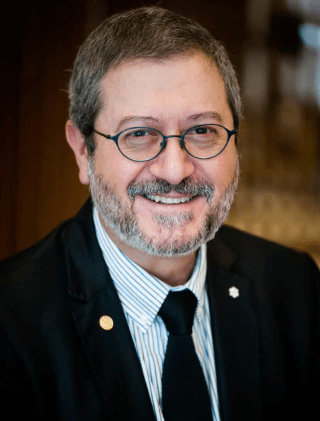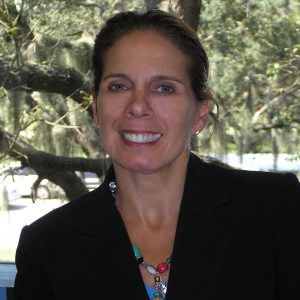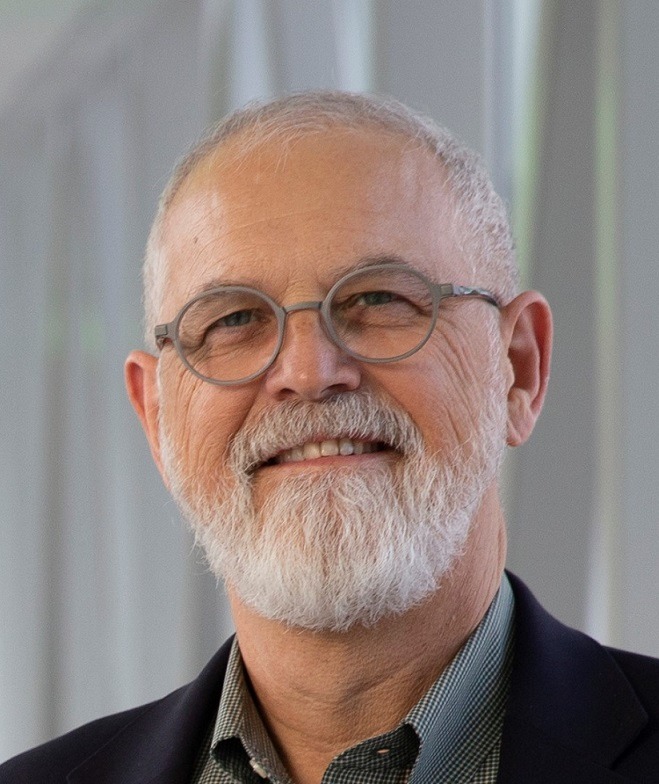Early Career Researchers
IPVC 2020 postponed to July 20-24, 2020
IPVC 2020 features an outstanding program of invited speakers, including three workshops tailored just for Early Career Researchers (ECRs).
Here is a sneak peek at the exciting experiences we have in store for ECRs.
Best Practices in Publishing Public Health, Clinical, and Biomedical Research
Eduardo L. Franco, BSc, MPH, DrPH, PhD (Hon), OC, FRSC, FCAHS
Tuesday, July 21 | 7:00 – 9:00 | Room 123
- The value of peer review as the cornerstone of scientific research and knowledge translation;
- Reading and writing well;
- Rules of authorship, strategies to avoid conflict;
- How to select journals, metrics of scientific value and impact;
- The dangers of predatory publishing, vanity presses, and for-profit conferences;
- The shifting paradigm of scholarly publishing.
Interactive lecturing to take advantage of students’ own experiences as authors and reviewers; emphasis on issues pertaining to study design, ethics, data analysis, peer review, scientific integrity, and strategies of communicating and interpreting research results.
Professor Franco has extensive experience as an author, mentor, reviewer, editor, and in evaluating research productivity. He published 495 scientific articles, 61 chapters, and 2 books on cancer epidemiology and prevention. He was Guest Editor for 10 journal supplement issues on these topics. Since 1985, he mentored 121 graduate students and fellows. He is the Editor-in-Chief of Preventive Medicine, a top-tier medical and public health journal.
He is also the Founding Editor of Preventive Medicine Reports and Senior Editor for eLife. He has served in the editorial boards of: American Journal of Epidemiology (1993-98), Cancer Detection and Prevention (2001-08), Cancer Epidemiology, Biomarkers & Prevention (since 1995), Epidemiology (1993-2009), International Journal of Cancer (since 2009), Journal of Epidemiology and Global Health (2011-16), Medical and Pediatric Oncology (2000-04), Oral Diseases (2005-10), Papillomavirus Research (since 2015), PLOS-Medicine (2004-17), Salud Pública de México (since 2004). He has also served as ad hoc manuscript reviewer for dozens of other biomedical journals.

Eduardo L. Franco
Dr. Eduardo L. Franco, Professor, Departments of Oncology and of Epidemiology; Chairman, Department of Oncology, and Director, Division of Cancer Epidemiology, McGill University, Montreal, Canada.
Eduardo L. Franco
Best Practices in Writing Protocols and Grants
Anna R. Giuliano and Alan Nyitray
Wednesday, July 22 | 7:00 – 8:30 | Room 114
- Overview of grant process;
- Specific Aims – components of strong specific aims, how to turn a hypothesis into specific aims;
- Significance and Innovation – why should a funder prioritize the research you are proposing;
- How to leverage preliminary data to support your grant application;
- Approach – methods, potential pitfalls and alternative approaches.
Interactive lecturing to take advantage of students’ own experiences as applicants and reviewers of grants; emphasis on issues pertaining to study design, peer review, and strategies of communicating the importance of the research that is proposed.
Anna Giuliano
Professor Giuliano has extensive experience as a grant reviewer. She has served multiple year terms as a member of several different peer-review panels convened to review US National Institutes of Health (NIH) grants. These include study sections that review community level interventions (2002-2005), cancer epidemiology studies (2005-2010), cancer cohort studies (2012-2015), cancer biomarker studies (2015-2019), and foreign institution medical education grant applications (2010-2012). In addition, she served as a member of the American Cancer Society peer review committee (2004-2009) and continues to be a reviewer for multiple pilot grant programs within the Moffitt Cancer Center.
An expert in the field of cancer research with a longstanding and successful record of NIH funding since 1990, she has been actively involved in cancer epidemiology and prevention studies conducted among diverse populations in the United States and abroad. In the course of those endeavors, Dr. Giuliano was a contributor to the 1999 Institute of Medicine (IOM) report titled The Unequal Burden of Cancer and the 2005 International Agency for Research on Cancer
(IARC) report that concluded for the first time that HPV is a cause of multiple cancers in women and men. Dr. Giuliano has been honored to receive two important awards from the American Cancer Society (ACS). In 2013, at the ACS 100th anniversary, she was the recipient of the ACS Distinguished Achievement in Cancer Award. In 2018, she was selected for the ACS Clinical Research Professor Award for “Prevention of Infection-Related Cancers.” In 2019, Dr. Giuliano received the American Society of Preventive Oncology (ASPO) Fraumeni Distinguished Lifetime Achievement Award. Dr. Giuliano has authored >400 peer-reviewed publications.
Alan Nyitray
Alan Nyitray is an Associate Professor of Epidemiology at the Medical College of Wisconsin in Milwaukee. His research has focused on the natural history of anal HPV infection and, most recently, anal cancer screening. An Early Stage Investigator until 2018, he is currently Principal Investigator for two US National Cancer Institute R01 grants assessing protocols for anal precancer and cancer screening. In addition, he has successfully competed for R03, R21, and industry grants. He has published more the 60 peer-reviewed papers on these topics. Prior to his HPV research, Nyitray delivered HIV prevention in a service capacity for 15 years. During this time, he successfully competed for local, state and national grants while also serving frequently on peer-review grant panels.

Anna R. Giuliano, PhD
Anna R. Giuliano, PhD, is the founding Director of the Center for Immunization and Infection Research in Cancer (CIIRC) and is a Professor in the Cancer Epidemiology Department at the Moffitt Cancer Center in Tampa, Florida.
Anna R. Giuliano, PhD

Alan Nyitray, PhD
Alan Nyitray is an Associate Professor of Epidemiology at the Medical College of Wisconsin in Milwaukee. His research has focused on the natural history of anal HPV infection and, most recently, anal cancer screening.
Alan Nyitray, PhD
Good Laboratory Practice (GLP)
Thomas Iftner
Thursday, July 23 | 7:00 – 8:30 | Room 114
- Values in research;
- Forms of scientific misconduct;
- Known cases of scientific misconduct; rules and recommendations for GLP;
- Daily life in the lab: documentation of research methods and research results, authorship regulations, correct referencing of citations;
- Commissions for scientific misbehavior at the University
Interactive lecturing to take advantage of students’ own experiences as researchers working in the lab;
Professor Iftner has a wide research interest in the field of papillomaviruses ranging from basic research, animal models and clinical studies to molecular epidemiology. He published more than 150 peer reviewed publications. Professor Iftner was member of expert panels of the International Agency for Research on Cancer (IARC) in Lyon, France, for drafting the Cervical Cancer Screening Handbook, as well as the Monograph on Cervical Cancer Prevention and Papillomaviruses, in which the valid risk classification of HPV genotypes has been set. He is chairman and initiator of the project group ZERVITA which aims at informing the German public and specialists regarding risk factors, prevention, early diagnosis and treatment of cervical cancer.

Thomas Iftner, PhD
Professor Thomas Iftner received his Diploma in Biology and his Ph.D. from the Friedrich-Alexander-University Erlangen-Nuernberg, Germany. His postgraduate training included a research fellowship at the University of California, Los Angeles, USA. Currently he is professor at Tuebingen University, Director of the Institute of Medical Virology and Epidemiology of Viral Diseases and Vice Dean of the Medical Faculty. He was Dean of Study of students of Molecular Medicine from 2006-2018 at the Medical Faculty Tuebingen. In addition, he is a member of the Board of Directors of the IPVS since 2011 and adjunct professor at James Cook University, Townsville, Australia, since 2009.
Professor Iftner has a wide research interest in the field of papillomaviruses ranging from basic research, animal models and clinical studies to molecular epidemiology. He published more than 150 peer reviewed publications. Professor Iftner was member of expert panels of the International Agency for Research on Cancer (IARC) in Lyon, France, for drafting the Cervical Cancer Screening Handbook, as well as the Monograph on Cervical Cancer Prevention and Papillomaviruses, in which the valid risk classification of HPV genotypes has been set. He is chairman and initiator of the project group ZERVITA which aims at informing the German public and specialists regarding risk factors, prevention, early diagnosis and treatment of cervical cancer.
